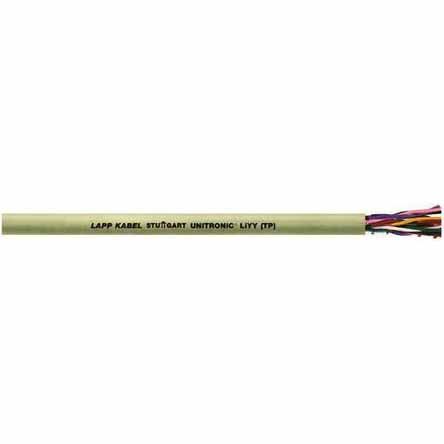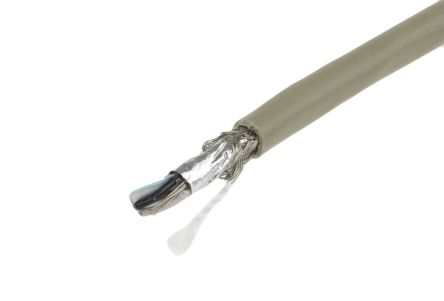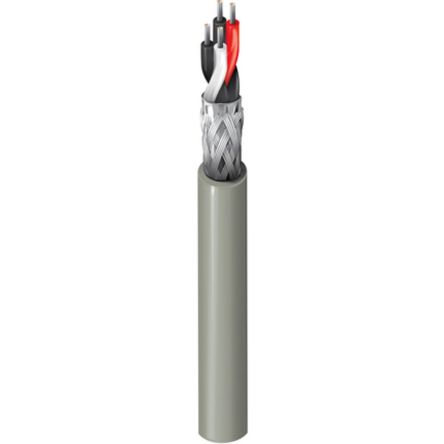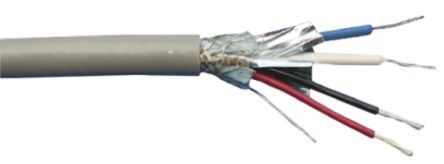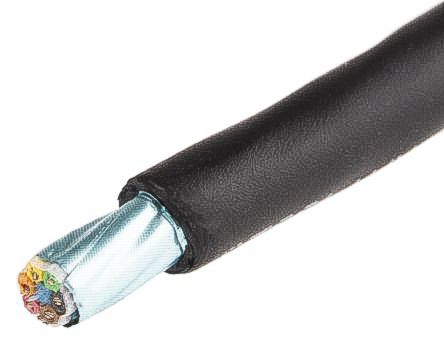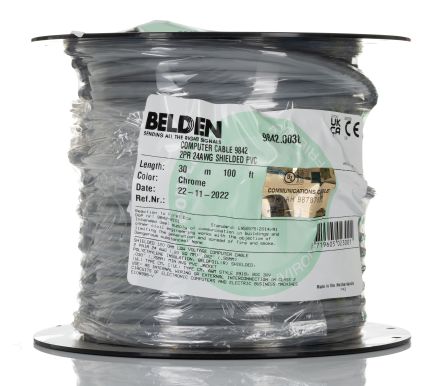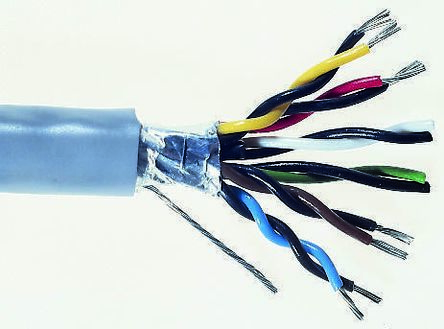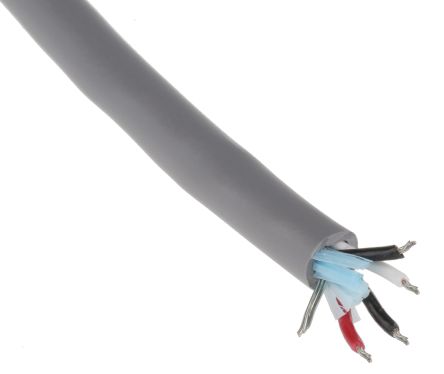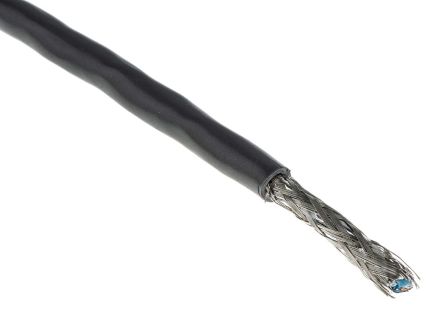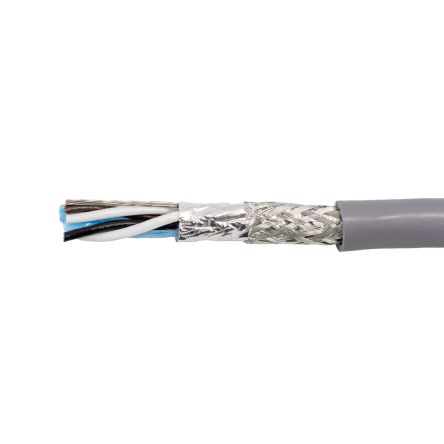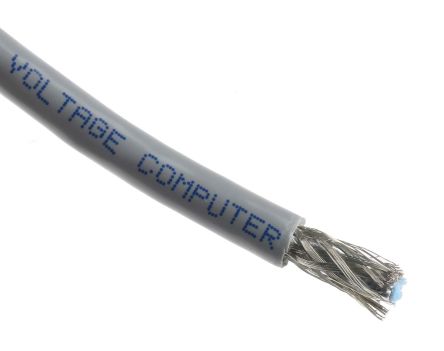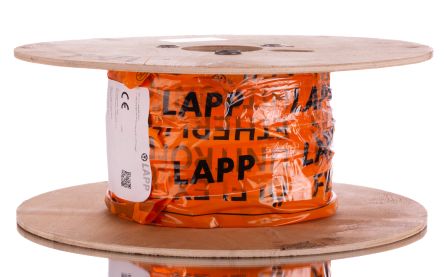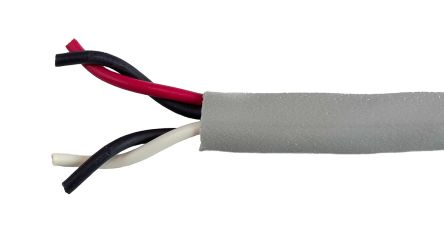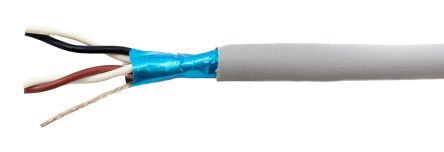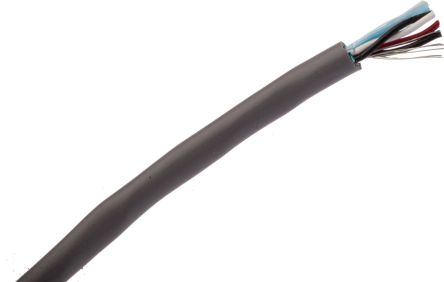- Automation & Control Gear
- Cables & Wires
- Enclosures & Server Racks
- Fuses & Circuit Breakers
- HVAC, Fans & Thermal Management
- Lighting
- Relays & Signal Conditioning
- Switches
- Batteries & Chargers
- Connectors
- Displays & Optoelectronics
- ESD Control, Cleanroom & PCB Prototyping
- Passive Components
- Power Supplies & Transformers
- Raspberry Pi, Arduino, ROCK, STEM Education & Development Tools
- Semiconductors
Twisted Pair Cables
In the realm of digital communication, the importance of reliable data transmission cannot be overstated. Twisted pair and multicore data cables form the backbone of modern networking and telecommunications systems, facilitating the swift and secure transfer of data across various industries, including data centres and corporate networks.
These copper cables are engineered to minimise interference and maximise data integrity, making them essential for efficient operations.
What is a Twisted Pair Cable?
Twisted pair cables are a cable with two conductors twisted together on a single circuit. The cores are then enclosed in an outer sheath, commonly PVC. When a wire conducts electricity, it naturally forms an electromagnetic field surrounding it, interfering with neighbouring wires.
Twisted pairs transport signals in different directions to lessen and eliminate this effect, so the two magnetic fields occur at opposite ends, thus cancelling each other out. This is frequently referred to as cancellation.
Types of Twisted Pair Cables
There are two main types of twisted pair cables:
1. Shielded Twisted Pair Cable (STP)
STP cables, encased in shielding such as braided wire mesh or aluminium foil, provide superior resistance to noise and signal interference, ideal for environments with high electromagnetic interference (EMI). These cables are crucial in various industrial settings, including manufacturing facilities and data centres, where reliable data transmission is paramount. The type of shielding used can vary depending on the level of sensitivity and EMI exposure:
- Single Braid: Suitable for low-level EMI environments or low-sensitivity applications.
- Single Optimised Braid: Used for sensitive lines in high EMI conditions.
- Double Optimised Braid: Best for highly sensitive lines in severe EMI scenarios.
- Supershielded: Designed for environments requiring protection against EMP/Tempest.
- Double Supershielded: Offers the highest level of shielding for maximum protection.
2. Unshielded Twisted Pair Cable (UTP)
Popular in Ethernet and telephone systems, UTP cables are favoured for their cost-effectiveness and ease of installation. They are flexible and simple to manage but are susceptible to interference, making them less suitable for long distances or high-interference environments without repeaters. UTP cables can support speeds up to 1 Gbps for distances up to 100 metres.
Why Use a Twisted Pair Cable?
Twisted pair cables, including shielded and unshielded ones, offer significant advantages over more traditional coaxial cables, especially in terms of flexibility and cost-effectiveness. These cables can be bent and routed around tight spaces without significant signal loss, making them ideal for complex network installations. Additionally, the thinner and lighter design of twisted pair cables reduces material costs, making them a more economical choice while still maintaining high transmission quality.
Choosing between STP and UTP depends on the specific environment and requirements of your network. STP is typically used in areas prone to electronic interference, as it provides an extra layer of shielding, while UTP is sufficient and more cost-effective for less demanding setups.
Features of Twisted Pair Cables
Twisted pair cables are designed to meet a variety of industrial needs with efficiency and cost-effectiveness. Here are some standout features:
- Cost Savings: Offers significant cost advantages over traditional hand-built point-to-point harnesses, reducing overall expenditure.
- Flexible Order Quantities: Available in small order quantities, providing flexibility and allowing for precise project tailoring.
- Special Testing Options: Special testing can be requested to ensure cables meet specific regulatory and performance standards.
- Complimentary Cable Design Services: Cable design services are offered free-of-charge, assisting customers from the planning phase to final implementation, ensuring optimal setup and functionality.
Applications of Twisted Pair Cables in Industrial Settings
Twisted pair cables are extensively used in various high-demand sectors due to their durability and reliability. Key industrial applications include:
- Military Ground, Marine, and Aerospace: Utilised for critical systems such as engine bay wiring, airframe communications, and missile internal wiring where reliability under extreme conditions is paramount.
- Rotating Turret and Weapon Systems: Essential for signal and power bulk wiring in rotating turret mechanisms and weapon systems, ensuring consistent performance even during continuous movement.
- Radar and Control Systems: Deployed in radar and launch control systems, these cables facilitate robust and secure data transmission necessary for precise operations.
- Back-up Camera Systems: Used in military and aerospace vehicles for back-up camera setups, providing reliable image transmission crucial for operational safety.
- Below Deck Zero Halogen Cabling: Ideal for marine applications, these cables ensure safety and compliance with strict fire safety standards by reducing the emission of toxic gases and smoke.
Ordering and Delivery Information
You can place an order with RS in a few different ways. The quickest and most convenient method is online, where you can search, browse, and add products to your basket for delivery as soon as the next day or pick up at your local branch. Alternatively, you can order by phone at +65 6865 3400. When ordering online, simply select your items, specify quantities, and choose your delivery options. For delivery, you can opt for immediate dispatch or schedule a forward order for future delivery.
For next working day delivery, please refer to our Delivery page for more details on cut-off timings.
Popular Searches
Related links
- MICROWIRES Twisted Pair Cable 0.08 mm² 28 AWG Shielded Cable
- MICROWIRES Twisted Pair Cable 0.13 mm² 26 AWG Shielded Cable
- MICROWIRES Twisted Pair Cable 0.13 mm² 26 AWG Shielded Cable
- MICROWIRES Twisted Pair Cable 0.13 mm² 26 AWG Shielded Cable
- MICROWIRES Twisted Pair Cable 0.08 mm² 28 AWG Shielded Cable
- MICROWIRES Twisted Pair Cable 0.08 mm² 28 AWG Shielded Cable
- MICROWIRES Twisted Pair Cable 0.08 mm² 28 AWG Shielded Cable
- MICROWIRES Twisted Pair Cable 0.13 mm² 26 AWG Shielded Cable
